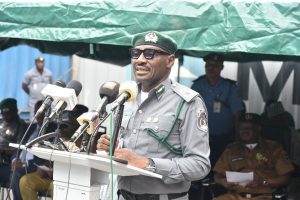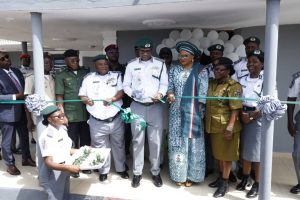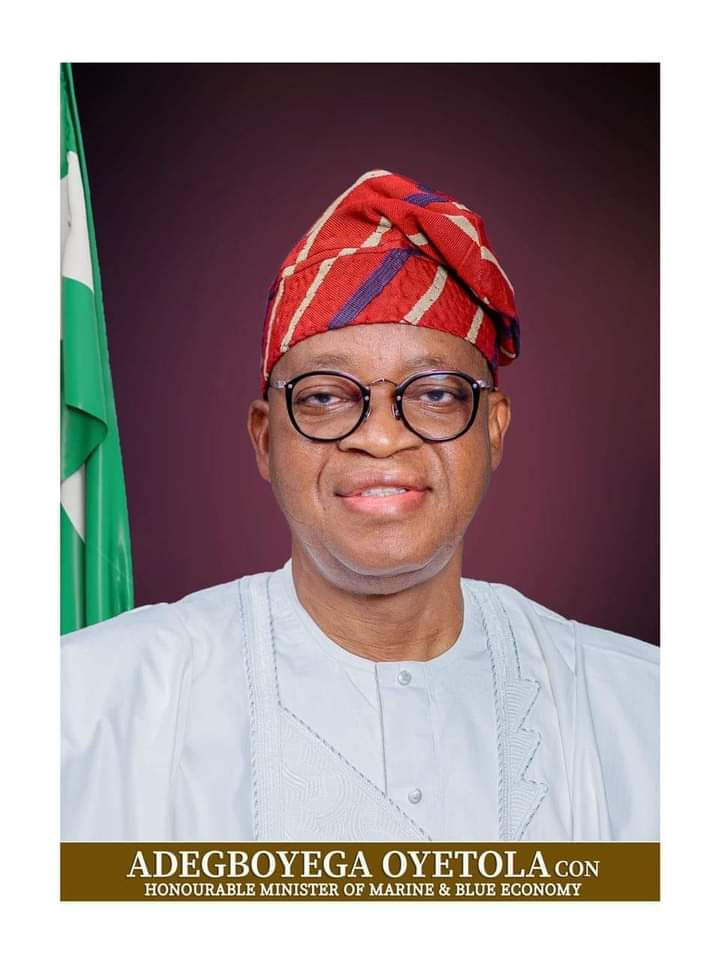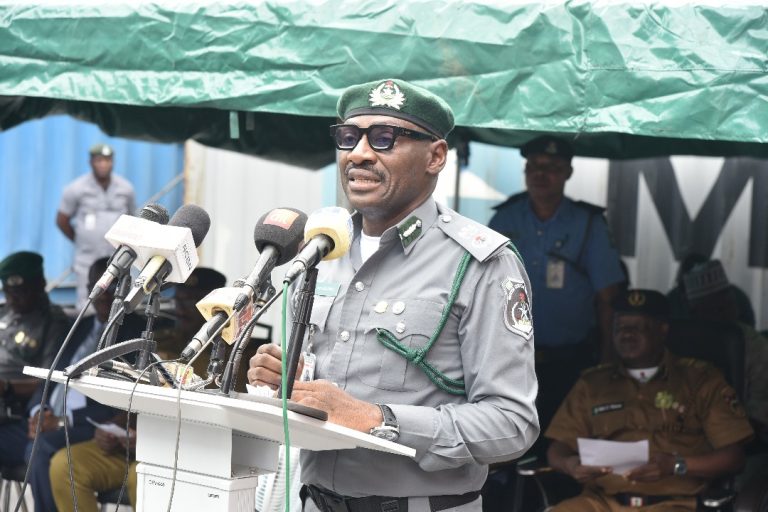…NBA volunteers 3, 000 lawyers to defend LUC cases***
Forty-four African countries yesterday proceeded with the signing of the agreement that established the African Continental Free Trade Area (AfCFTA) without the two biggest economies, Nigeria and South Africa, and nine others.
Although a minimum of 22 countries were required to sign to get the project started, 44 nations okayed the pact to establish the free trade bloc within 18 months. The other countries that did not sign are Botswana, Lesotho, Namibia, Zambia, Burundi, Eritrea, Benin, Sierra Leone and Guinea Bissau.
The African Union (AU) started talks in 2015 to establish a 55-nation bloc that would be the biggest in the world, in a bid to increase intra-regional trade, which is currently 15 percent of the continent’s total commerce.
President Muhammadu Buhari yesterday declared that his administration was not disposed to entering into any agreement that would make the country a dumping ground and jeopardise its security architecture.
Consequently, the Federal Government announced the setting up of a committee to review the Continental Free Trade Area (CFTA) framework agreement which was signed in Kigali, Rwanda.
Nigeria had pulled out from the ongoing African Union extraordinary meeting as a result of protest by the Nigeria Labour Congress (NLC) among other stakeholders who argued that the free trade agreement would not augur well for the country.
Briefing State House correspondents after the Federal Executive Council (FEC) meeting at the Presidential Villa, Abuja, the Special Adviser to the President on Media and Publicity, Femi Adesina, said it was expected that the minister of labour would call for a stakeholders meeting with labour movement to brainstorm on the implications of the CFTA framework agreement.
“The explanation from the president which the FEC bought was that he would not want to agree to anything that would hinder local entrepreneurs. And on the surface, except if proven wrong, is that that agreement has the capacity to affect local entrepreneurship.
“He also said that anything that could encourage the dumping of finished goods in Nigeria was going to be contrary to our interest. So, it is one of the reasons he declined. Then he said the country was yet to fully understand the economic and security implications of the agreement.
“So, there has to be further consultations with different stakeholders and the final position was that a committee be set up to meet and review the contents of that proposal. They will do it within two weeks and get back to the Federal Executive Council.”
The FEC presided over by Vice President Yemi Osinbajo, penultimate Wednesday gave approval to President Buhari to sign the CFTA on behalf of Nigeria.
But Buhari last Saturday cancelled Nigeria’s participation in the signing of the agreement even when some delegates from the country had arrived in Kigali for the meeting.
Local manufacturers under the aegis of the Manufacturers Association of Nigeria (MAN) have stated that they would not support Federal Government’s adoption and ratification of the AfCFTA unless issues of market access and enforcement of rules of origin, among other concerns, are addressed.
According to MAN, the stand of the private sector is a result of lack of consultation and non-inclusion of inputs of key stakeholders before Nigeria’s position was presented at the meetings of the African Union-Technical Working Group on CFTA in the build-up to the negotiations.
The private sector operators said the trade deal would not be in national interest, despite Nigeria’s Minister of Trade and Investment, Dr. Okechukwu Enelamah, chairing the fifth meeting of African Union Ministers of Trade (AMOT) that adopted the legal instruments constituting the AfCFTA, which were eventually adopted by the Assembly of Heads of State and Governments.
The AfCFTA is expected to create a trade bloc of 1.2 billion people with a combined gross domestic product (GDP) of more than $2 trillion. The agreement commits countries to removing tariffs on 90 per cent of goods and to liberalise services.
Meanwhile, the Ikeja Branch of the Nigerian Bar Association, NBA, yesterday promised to volunteer 3000 lawyers to defend anybody dragged to court by Lagos State Government over the the reviewed Land Use Charge, LUC, introduced by the Governor Akinwunmi Ambode-led Lagos State government.
This came as the branch threatened another round of protest on Friday, March 29, 2018, describing the new law as “nothing but a fraud and a toxic charge. It urged Lagosians not to be in hurry to pay the charge. Its Chairman, Adesina Ogunlana at briefing tagged, ‘Land Use Charge: Matters Arising: GATT Must Go’, insisted that the introduction of the charge was undemocratic, illegal, excessively oppressive, arbitrary and parochial.
Ogunlana, who frowned at the shabby way Ikeja NBA branch was allegedly treated by the state government during its protest tagged, ‘Walk The Talk’, argued that sudden reduction of the charge by the state government was a sham. According to Ogunlana,
“In fact, we NBA Ikeja branch completely reject the reduction for being a sham, a calculated ploy to hoodwink the good people of Lagos State and to present the facade that here – Ambode government is a listening and sensitive government. ”The reduction is a sham, a farce and a fraud because, the rates prescribed now subjected to reduction is based on a fraudulently extractive foundation.
There was no proper evaluation of properties. Property owners were never aware or involve in any evaluation of their properties. So what we had from government is ghost evaluation. “So when the government says it is slashing cost, they are only deceiving people: the amounts prescribed are mere fantasies of their imagination. We reiterate our rejection of the Land Use Charge, high litigation cost in the court, borehole levies, car registration and all such other oppressive, illegal, extortionate charge of Lagos State.
“The Land Use Charge Law 2018 as known now must be repealed. Lagosians, from our own understanding and interactions are not against taxation in Lagos State and are not even against increase in taxation. However, the conditions for their acceptance of taxes are: transparent, gradual, reasonable and legally utilized. No Lagosian should be in any hurry to pay the Land Use Charge.”
“No payment should be made until the government listens and bow to the people’s will. Let the parliament within 7 days from now publish in the papers the proposed draft of the Reviewed Land Use Charge Law of Lagos State for interested residents and stakeholders to study for adequate participation in public hearing that will proceed any amendment and which amendment should be delayed until May 2018.
Guardian NG with additional report from Vanguard





















